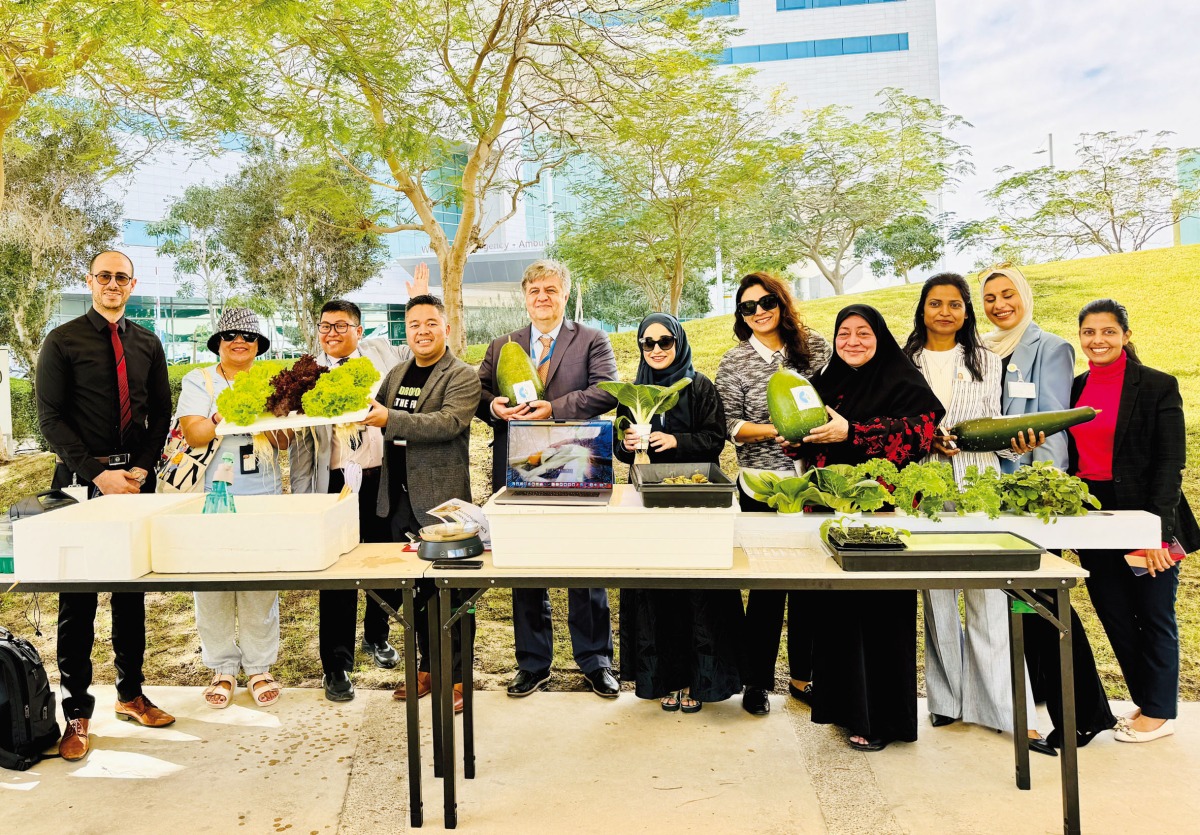The Ambulatory Care Center (ACC) of Hamad Medical Corporation (HMC) in Doha, Qatar recently hosted a seminar on hydroponic farming called “Harvesting Happiness: Intro to Hydroponics Gardening,” attended by both clinical and non-clinical staff. The workshop, conducted by Jeacim Adaya of Team Adaya Hydroponics Gardening, introduced participants to the concept of growing crops without soil using water-based nutrient solutions. This technique has gained worldwide popularity for its efficiency and potential for sustainable urban farming.
One of the main challenges faced by traditional farming in Qatar is the arid climate and water scarcity. In response to this, ACC’s Executive Director for Clinical Services, Khadija Khalid Mohammed, organized and sponsored the event to highlight the benefits of hydroponics in addressing these challenges. She emphasized the importance of person-centered care and wellness promotion, stating that hydroponics offers healthcare staff the opportunity to engage in gardening in an urban setting while enhancing the delivery of compassionate care to patients.
During the seminar, Adaya showcased a variety of crops grown in his hydroponics garden, such as lettuce, strawberries, cucumber, and tomatoes, demonstrating the adaptability of the system. Attendees also had the opportunity to participate in live harvesting and tasting sessions, providing them with a hands-on farm-to-table experience. Adaya presented different hydroponic cultivation methods, including the Kratky method, Nutrient Film Technique (NFT), and Dutch Bucket system, highlighting their advantages in various contexts.
Hydroponics not only produces nutrient-rich crops but also eliminates the need for harmful pesticides and chemicals, promoting cleaner and healthier food options. Families can bond over cultivating their own food, whether indoors or outdoors, and reduce their dependence on commercial imports. Workshop organizers and participants expressed their excitement about using hydroponics technology to cultivate fresh, locally grown produce year-round, encouraging healthier food choices.
With the increasing interest in sustainable and locally sourced food options, there is a growing potential for hydroponic farming both globally and locally in Qatar. Adaya and ACC personnel see the scalability, resource efficiency, and adaptability of hydroponics as key factors in enhancing food security and conserving water resources in Qatar. The technology could play a significant role in addressing climate change challenges and promoting healthier food options for the community.
In conclusion, the seminar on hydroponic farming at the ACC in Qatar has highlighted the potential of this innovative gardening technique in addressing the challenges faced by traditional farming methods. The event provided participants with valuable knowledge about growing crops without soil, promoting cleaner and healthier food options, and fostering a culture of person-centered care within the healthcare community. With its adaptability, efficiency, and sustainability, hydroponics offers a promising solution for enhancing food security and conserving water resources in Qatar and beyond.










